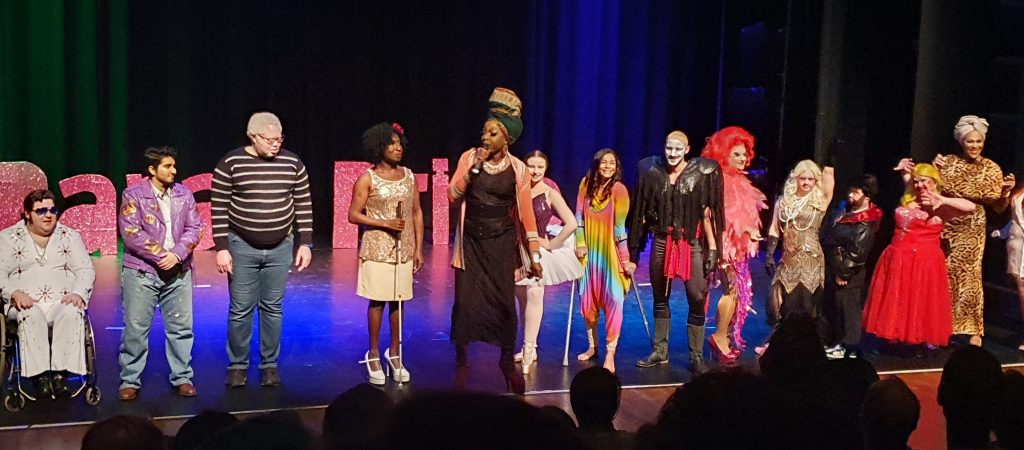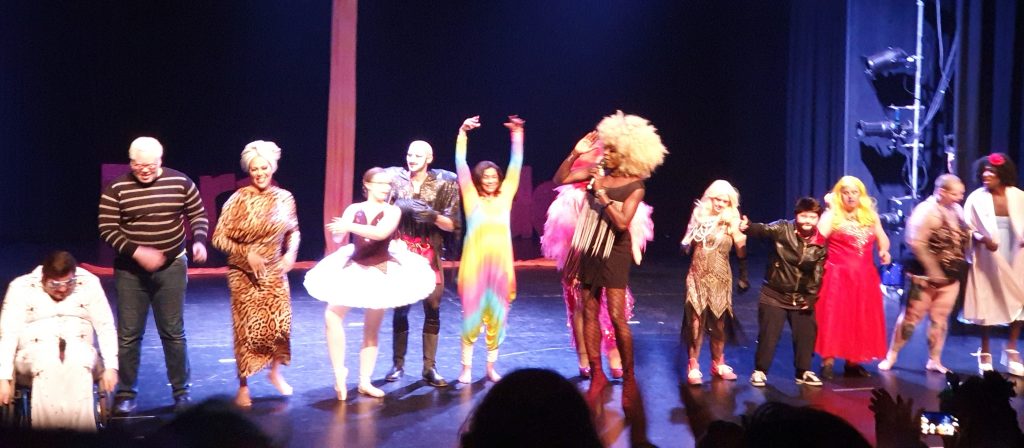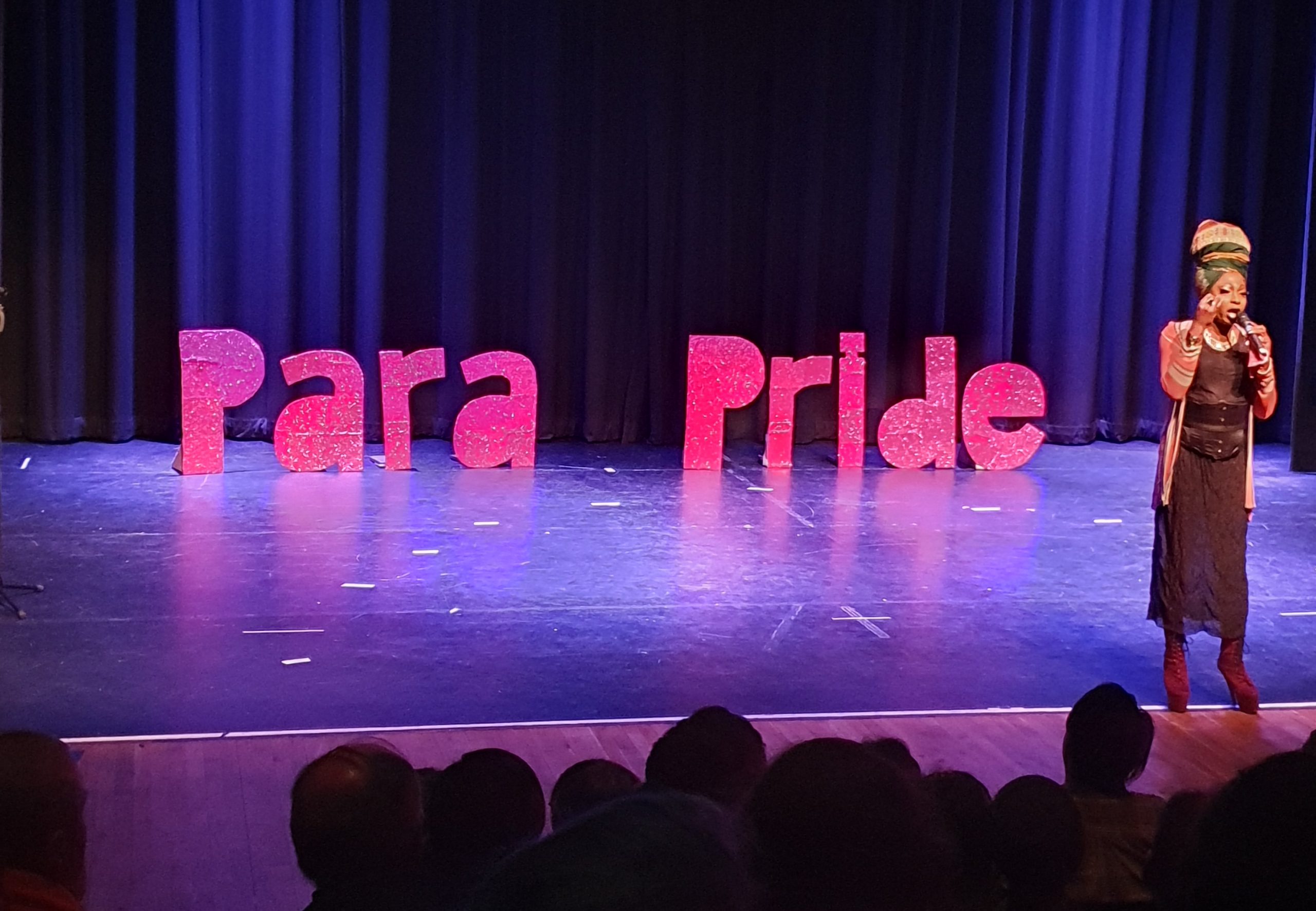

ParaPride held a great night at the Stratford Arts Circus to raise funds for their work.
It was a great success with a very enthusiastic audience clearly enjoying the range of talent on display which included
Son of a Tutu (show host); Mark Anthony, (Drag King); Wheel Elvis (Jimmy Hennigan – impersonator/singer); Maria Hurtz, (Drag Queen); Ebony Rose Dark (Interpretive dance/performing arts; Frankie, (Poet); Frisk Lee, (ballerina); Mzz Kimberley (singer); Drag Syndrome (Drag troop/collective); Galavant Guarde (singer/dancer/performing arts); Aim to Fly (aereol artist); Smashlyn Monroe (burlesque artist/fire eater).
I felt like we were in a music hall event with the amazing variety of diversity of entertainment. The show clearly raised the question of the lack of visibility of LGBT disabled artists and people on the scene. Lack of accessibility is the main problem and most of our LGBT+ venues have not considered the issue at all. Back in the eighties I was part of a women’s group that was trying to challenge the lack of awareness of theatres about access, they are particularly bad at dealing with that.
ParaPride is not afraid of challenging our preconceptions educating us about the issue and entertaining us
40% of LGBT+ people suffer some form of disability or impairment, so it is more than time we took our venues to task. LGBT+ History Month is about celebrating and making visible the full diversity of our community. Too often we fail to show the full spectrum, so I was particularly grateful and excited by this show.
I can only hope that they grow and infiltrate our spaces and remind us that we need to be aware that we don’t have all our rights if a part of our community are left behind. Para Pride remind us that we are missing a great variety of talent if don’t demand from our venues a true representation of our community.
- LGBTQ Disability – With approximately 40% of LGBTQ people being recognised as having A disability, disabled people remain excluded from the common LGBTQ experience. Besides the many infrastructural barriers, cultural inaccessibility significantly contributes to the lack of viability of disabled people in society.
- LGBTQ Disability – ‘LGBTQ disabled people are more likely to have experienced a hate crime or incident based on their sexual orientation and/or gender identity: 27% in the last year compared to 17% of non-disabled LGBTQ people’.
- LGBTQ Mental Health – ‘52% of young LGBTQ people reported self-harm either recently or in the past compared to 25% of heterosexual, non-trans young people’.
The research/stats used mainly come from the sources below:
https://www.respectability.org/
https://www.gov.uk/government/publications/national-lgbt-survey-summary-report
https://www.disabled-world.com/
https://ajph.aphapublications.org/

